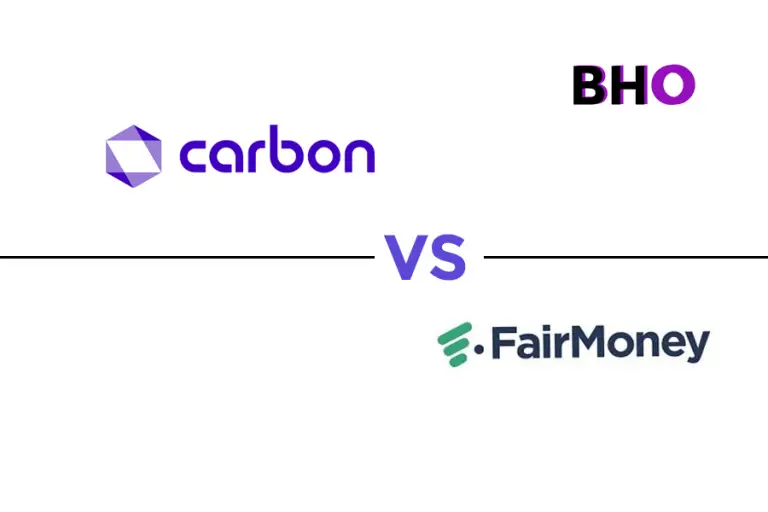Monopoly Unveiled: Analysis of the Controversial Legal Verdict Against Google
Table of Contents
Introduction
On the monopoly market:“Too big to fail isn’t just a business term—it’s a psychological state that can foster complacency and arrogance in the corporate world.”
— Andrew Ross Sorkin, Too Big to Fail

In the tech world, few companies hold as much influence as Google. From its origins as a search engine in 1998 to its current position as a multi-billion-dollar conglomerate, Google has become synonymous with the internet itself. Yet, with great power comes great scrutiny, and Google has found itself at the center of one of the most significant antitrust rulings in modern history. In 2023, U.S. courts declared Google a monopoly, citing its market practices as anti-competitive. This article delves into the foundations of antitrust laws, its origins, examines the specifics of the Google case, and explores its broader implications.
What Are Antitrust Laws?
Antitrust laws are designed to ensure fair competition in the marketplace by preventing monopolistic behavior, abuse of market dominance, and practices that stifle innovation or harm consumers. These laws aim to create a level playing field where no single entity can control prices, restrict access, or dominate supply.

Key Antitrust Laws in the United States
- Sherman Antitrust Act (1890): The cornerstone of U.S. antitrust legislation, this act prohibits monopolistic practices and concerted efforts to restrain trade. An example of this in action was the breakup of Standard Oil in 1911 for dominating the oil industry.
- Clayton Antitrust Act (1914): This law addresses specific anti-competitive practices such as price discrimination, exclusive dealing, and mergers that significantly reduce competition. A good example of its application was in AT&T’s breakup in 1984 for monopolizing telecommunications.

- Federal Trade Commission Act (1914): Establishes the Federal Trade Commission (FTC) to enforce antitrust laws and prevent deceptive business practices and monitor unfair competition.
These laws have been pivotal in cases like Microsoft’s landmark case (1998), and others mentioned above setting the stage for modern antitrust litigation. Antitrust laws vary globally, with the European Union’s Competition Law being a prominent framework.

The Case Against Google: A Closer Look
In October 2020, Attorney General Tong and a bipartisan coalition of 38 attorneys general – as well as the U.S. Department of Justice – filed lawsuits against Google for anticompetitive conduct in violation of Section 2 of the Sherman Act.
In summary the accusation is : That Google unlawfully maintained monopolies in the search and digital advertising markets, engaging in practices that violated antitrust laws. After years of legal proceedings, a federal court ruled that google had violated antitrust laws on the 5th of August, 2024.
Key Allegations Against Google
- Exclusive Agreements: Google allegedly paid billions to companies like Apple to ensure its search engine was the default on devices and browsers, effectively shutting out competitors like Bing and DuckDuckGo.
- Self-Preferencing: Google’s search engine was accused of favoring its own services (e.g., Google Shopping, google maps) over competitors like Amazon and Yelp in search results, regardless of relevance.
- Advertising Domination: By owning both the supply (ad inventory on Google properties like YouTube) and demand (Google Ads and ad exchange), Google was accused of manipulating pricing and stifling healthy competition in the digital advertising ecosystem.
- Data Monopoly: Google’s unparalleled access to user data from its multiple platforms created barriers for other companies to compete effectively.
Court Proceedings and the Verdict
In August 2024, after extensive testimony, internal company documents, and expert analysis, U.S. District Judge Amit Mehta ruled that Google violated antitrust laws and hence is considered a monopoly. Since the verdict, the judge has yet to decide on the remedies, and Google will likely appeal, drawing out the process potentially for years.
Courtroom Revelations
- Internal Emails: Evidence included communications between Google executives discussing strategies to block competitors and maintain its dominance.
- Financial Transactions: Google’s payments to companies like Apple totaled approximately $10 billion annually to secure exclusivity agreements.
- Market Share Analysis: Google’s search engine runs a tight ship controlling over 90% of global market share, with no viable competitors close in comparison in terms of global reach. This is considered a monopoly.
- User Data Advantage: Google’s massive data collection capabilities allowed it to deliver targeted advertising more effectively than competitors, creating an uneven playing field.
Public Reactions
- The New York Times: Described the ruling as a “watershed moment” in the fight against the big tech monopoly, likening it to the Microsoft antitrust case of the late 1990s.
- The Washington Post: Highlighted how the case underscores a growing trend among global regulators to hold tech giants accountable for anti-competitive practices.
- CNBC: Emphasized the role of bipartisan support in advancing the lawsuit, with both Democrats and Republicans united in their criticism of Google’s market behavior.
Possible Remedies for Google’s Sovereign Monopoly
The DOJ is exploring several remedies for the monopoly, including:
- Breaking Up Google’s Advertising Business:
Separating the ad exchange from Google Ads to reduce conflicts of interest.
- Restricting Default Search Engine Deals:
Forcing Google to end exclusive agreements with device manufacturers.
- Fines and Monitoring:
Imposing substantial fines and appointing monitors to ensure compliance.
Global Implications of this Ruling.
1. Precedent for Big Tech Scrutiny
Google’s case is expected to embolden regulators worldwide. Similar antitrust investigations are already underway against Amazon, Meta, and Apple.
2. Structural Remedies
The verdict could lead to significant changes within Google’s operations. Possibilities include breaking up its advertising arm from its search engine to foster competition.
3. Consumer Impact
For consumers, this ruling could mean greater choice in search engines, lower advertising costs, and a more diverse digital marketplace with other search engines like Bing and Duck Duck Go providing services for a larger market and competing favourably with Google.
Lessons for Businesses
1. Dominance Must Be Ethical
Google’s case underscores the importance of ethical practices in maintaining market leadership. Businesses must prioritize fair competition over short-term profits.
2. Transparency is important
In the digital age, consumer trust is vital. Google’s data practices and lack of transparency eroded public and regulatory trust.
3. Diversification is Key
Businesses relying heavily on a single revenue stream, as Google does with advertising, are more vulnerable to scrutiny and legal challenges.
Comparison with Past Antitrust Cases
Google’s battle is not the first high-profile antitrust case:
- Microsoft (1998): Accused of bundling its Internet Explorer browser with Windows OS, restricting competition.
- Standard Oil (1911): The Rockefeller empire was dismantled for monopolizing the oil industry.
- AT&T (1984): The telecom giant was broken into smaller companies to encourage competition in telecommunications.
These cases highlight the cyclical nature of corporate dominance and regulatory intervention.
The ruling against Google underscores a critical lesson for corporations: dominance must be exercised responsibly. As Andrew Ross Sorkin notes in Too Big to Fail, unchecked power fosters arrogance and complacency, which can lead to downfall.
For Google, the case serves as a wake-up call to adopt fair practices, embrace transparency, and foster competition. In a world increasingly wary of monopolies, even giants must tread carefully.
References
- Sorkin, A. R. (2009). Too Big to Fail. Penguin Books. Too big to fail.
- DOJ Antitrust Case Files (2020). Antitrust Case Filings | United States Department of Justice
- The New York Times, “Google Antitrust Ruling: What It Means for Big Tech.” Google’s antitrust Ruling
- ‘Google Is a Monopolist,’ Judge Rules in Landmark Antitrust Case – The New York Times
- StatCounter: Search Engine Market Share Report (2023).
- Washington Post, “A New Era of Big Tech Accountability” (2023).
- CNBC, “Google’s Monopoly Ruling: A Breakdown.”Google’s Monopoly Ruling- Details of the case.
- How businesses establish monopoly power- Business Hub One
- Market leaders who failed to secure monopoly and where they are today- Business Hub One







